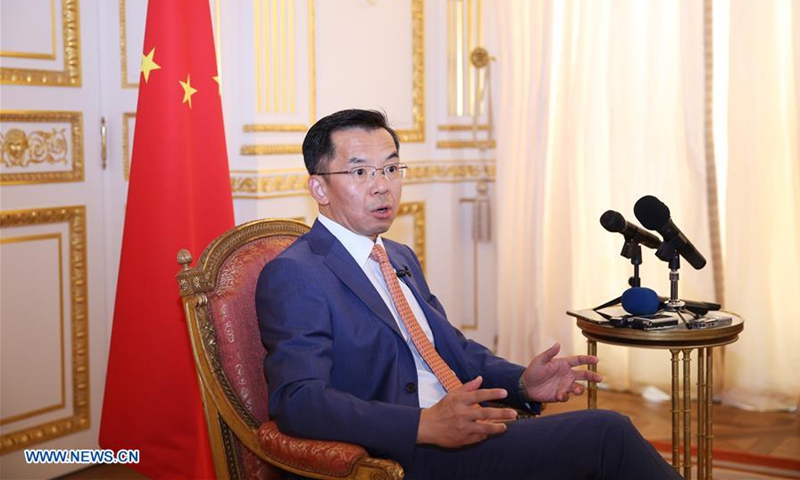Chinese envoy proud of ‘wolf warrior’ title to safeguard national interest, as China presents respectable image

Chinese ambassador to France Lu Shaye. Photo: Xinhua
Outspoken Chinese ambassador to France, Lu Shaye, said he is proud to be endowed with the title of "wolf warrior" and he is determined to stand in the way of "mad dogs" that attack China. Lu is the first Chinese diplomat publicly endorsing China's "self-defensive" diplomacy that aims to defend national interest and image, after foreign media recently hinted China is shifting from its current diplomatic style.
The current assertive, defend-yourself-when-necessary diplomacy, called by Western country as "wolf warrior diplomacy," is not deemed by Chinese analysts as a bad thing for the country, and they believed it doesn't contradict with President Xi Jinping's message of fostering an image of China that is trustworthy and respectable. Moreover, it is wrong to think that such diplomatic style is going to be changed in China.
"Wolf warrior" is a form of praise in China, which symbolizes warriors who fight for their country, Ambassador Lu said, while taking an interview with French newspaper L'Opinion.
On the "wolf warrior" accusation, Lu said that people who accuse China's diplomacy as "wolf war diplomacy" are cowards, and it is those on the offensive who like to accuse the victims of being "aggressive."
China has never been an aggressor, yet in the past year, has been criticized at multiple fronts, Lu said, asking, "Don't we have the right to fight back and defend ourselves? This is not fair!"
Lu's remarks were made after many foreign media, such as Deutsche Welle, misinterpreted President Xi Jinping's message delivered on May 31, in which he advocated to foster an image of China that is trustworthy, lovable and respectable. Some Western media misinterpreted the remarks as signals of China's "abandoning" of "wolf warrior diplomacy."
"Being defensive and assertive in international society doesn't contradict with being respectable. We have to stand firm and defend ourselves when necessary," Wang Yiwei, director of the institute of international affairs at Renmin University of China in Beijing.
The professor said that calling China's diplomacy a "wolf warrior" ethos reflects the superiority, condescending, arrogance and centralism of the West. The West is accustomed to attacking and accusing others, and has never paid the price or been counterattacked.
Lu said that in fact, "wolf warrior" is a positive term in China, referring to warriors who fight for their country. Since there are so many "mad dogs" attacking China, "I am honored to be awarded the title. We are fighters who stand in front of the motherland and fight for her, and we want to stand in the way of 'mad dogs' that attack China."
He also said that the embassy published stories online to let its voice be heard in public, yet many journalists, who disrespect professional ethics, got mad at the embassy's articles and labeled diplomats as "wolf warriors."
Lu said although they were accused by the media, they were also supported by the French people. And that the French people can access an alternative source of information via our publication, not just following the mainstream French media's distorted reports about China.


